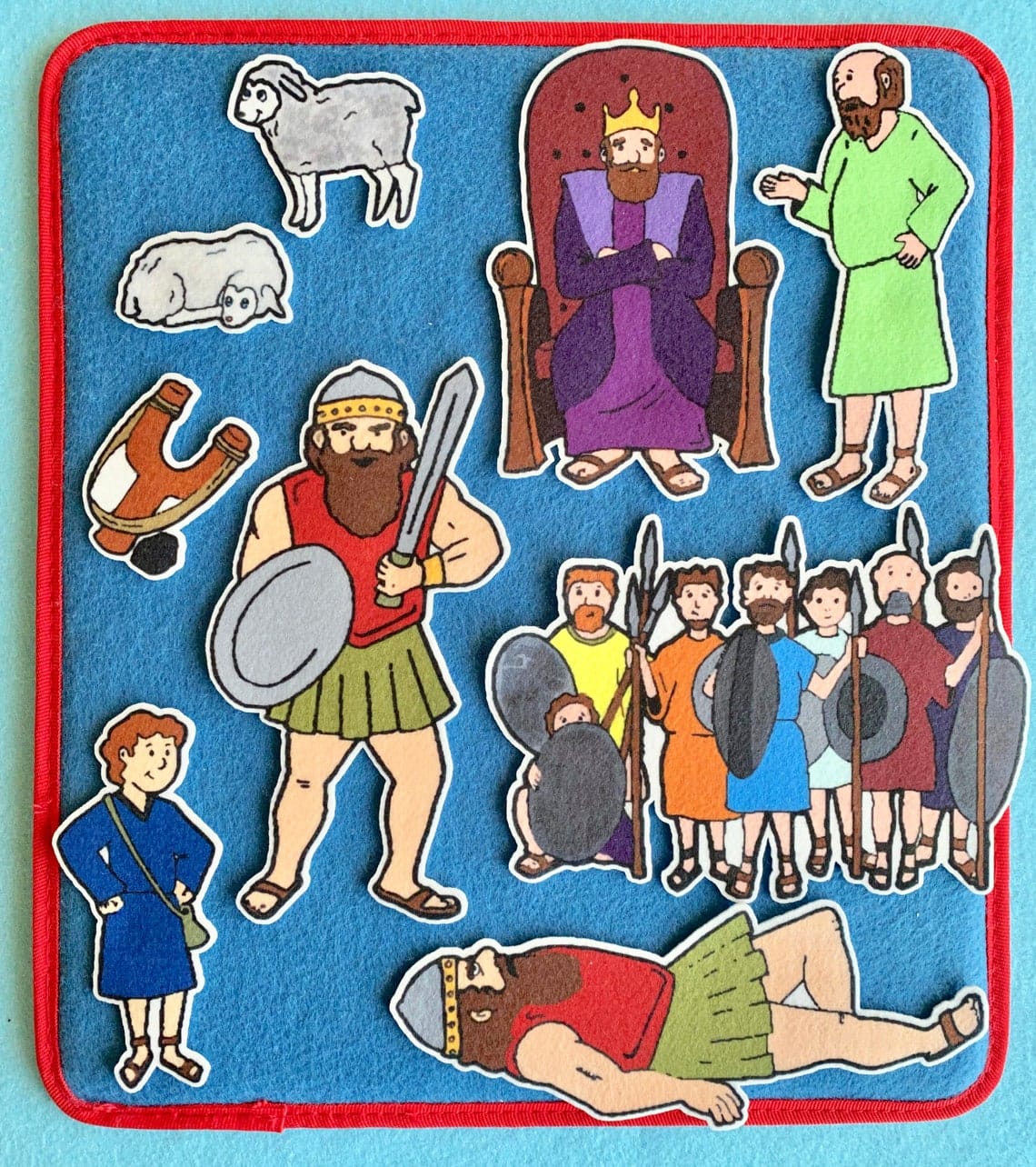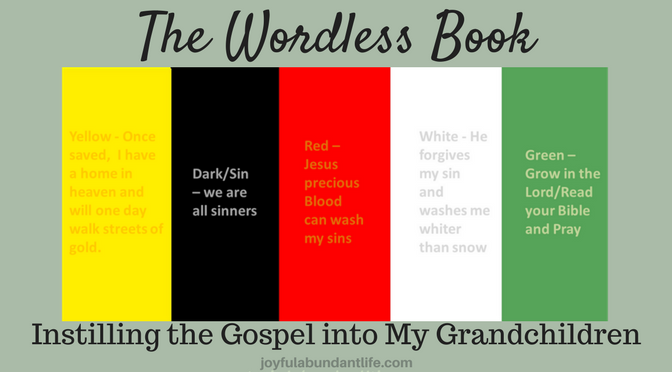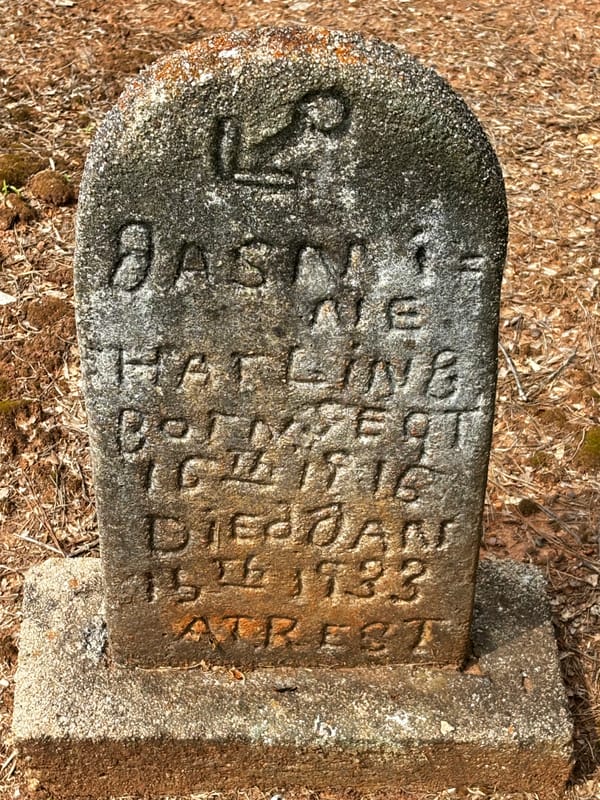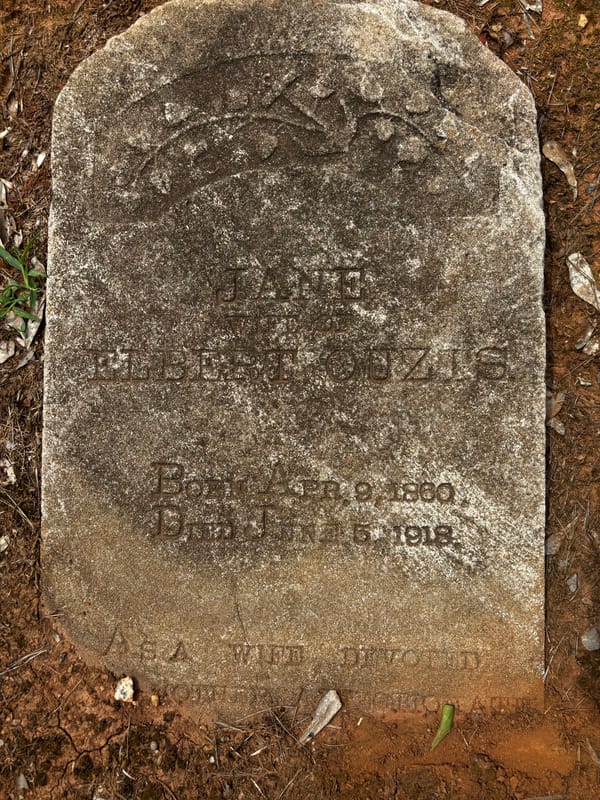“Boring” Testimony pt 1 - Life, Sin, & Death
My personal struggle, and the one I see happen to many of us who grew up in church, is a condescending pride that misses the point of a testimony and the Gospel.

People who know me, especially for the past five years, know I like to ask questions. One of my favorite questions to ask is what’s your testimony or what’s your story. I learned to ask this question the first time I met one of my friends from college’s fiancé. After initial introductions, he asked me, “What’s my testimony?”.
For those who may not know what a testimony is in the context of Christian tradition, it’s simply expressing how you came to understand the need for a savior and that that savior is found in Jesus. If you were to generalize this question, it’s basically asking, “What’s your story?”
Now, one thing I found with most people like myself who grew up with the Bible and faith is that we tend to trivialize our testimony. It comes off as “boring” because it wasn’t this massive shift of change. It’s typically not based on overcoming trauma at the moment. It’s sad because we tend to miss the beauty in our small beginnings and the faithfulness of those who taught us.
I’ve heard some really compelling testimonies from people who’ve come to Christ from drugs, crime, alcohol, abuse, and so many more. I also love hearing stories built on tiny embers flamed over time through family and friends and wanting to know God. I didn’t struggle with what many people consider the big designer sins or the most obvious ones.
My personal struggle, and the one I see happen to many of us who grew up in church, is a condescending pride that misses the point of a testimony and the Gospel. If you believe your testimony and your story are “boring,” then you are taking God for granted and those who helped you come to know Him.
The power of a testimony is in the Gospel, not you or I.
That said, I’m going to walk through my testimony to show God off and the people and events he used to help shape my story. This will be part one, which is the foundational aspect of how I came to know Jesus.
Grandma Ouzts
For those of you who are grandparents or caretakers of little ones, please understand the importance of this. The reason I love stories, especially the Bible, has a lot to do with my Grandma Ouzts. She was my primary caretaker and Sunday school teacher pretty much until I was in middle school.
I remember the blue felt board with the Bible figures to tell their stories: Joseph and his coat of many colors, Daniel and his three friends, and definitely David and Goliath. The one I actually remember the most was Elijah’s story.

She used to have these to gospel presentations that always grabbed my attention. The first one was she had this little book made out of construction paper-like material. It had multiple colors, and there were no words. Doing some research, it’s called by a fitting name, The Wordless Book . Much appreciative to the blog Joyful Abundant Life for giving me a reminder of what it was.
I loved that it was such a different way of telling a story. It reminds me of the simplicity of telling stories, especially within an oral tradition. I’m thinking of incorporating that in some of my stories 🤔. I was also surprised to find out a song accompanies it as well… I’m not singing it here, though 😅. There’s a photo that explains the meaning behind each color (gold/yellow, black, red, white, and green) within the book. The irony in the photo is that it’s directed at grandchildren.
We would go on our own to create our own booklets and explain them to our friends. Definitely a unique and interactive way of discipling.


The other gospel presentation she used to do dealt with dirt and mud. As a guy, I enjoyed being the helper with this one since I mixed the mud. She had a rectangular piece of glass and a lighter or match. She would hold up the mirror as a model for our heart and the flame of our soul/light. The flame was easily visible behind the glass.
However, she would then take the mud and smear it on the glass, representing sin. The more mud/sin, the harder it was to see the light behind the glass. It was a layer of separation, which illustrates our relationship with God as we sin. She also had water or alcohol to clean the glass, which represented what Jesus did on our behalf through his death and resurrection.
A quote that I love from Albert Einstein is:
“If you can't explain it to a six year old, you don't understand it yourself.”
It’s crazy how much you remember from childhood and how it impacts you. Within those presentations, though, were three verses that were and are very instrumental in my understanding of the Gospel. Two of the verses deal with sin and death.
Sin and Death
Both of these verses come from the book of Romans and they say:
Romans 3:23 (NKJV)
23 for all have sinned and fall short of the glory of God,
Romans 6:23 (NKJV)
23 For the wages of sin is death, but the gift of God is eternal life in Christ Jesus our Lord.
My first cousins should be very acquainted with these verses ‘cause grandma made sure she taught us them. 3:23 gave me a notion that I believe everyone intuitively knows; no one is perfect, but the verse says it plainly. God’s standard is perfection. The definition of sin I had as a kid was:
Sin is anything you think, say, or do that displeases God.
There’s a lot you can dive into with that definition, but 6:23 adds a layer of depth to sin: there’s a payment for sin. The payment is death. As a kid, you really don’t have a concept of what death is, especially here in the US, where mortality isn’t as pervasive as in the past or in other countries. However, when I was five, that changed.
My older sis, Taryn, who was ten at the time, had a best friend named Tiffany, who was nine. Tiffany suffered from sickle cell anemia, and ultimately, she passed from it, which was my first conscious experience in dealing with death. I saw the pain of my sis losing a friend and also understanding that she wasn’t that much older than me. Then you start to ask questions such as “Why do we die?” and you have to confront the fragility of life.
Since that moment, I’ve always thought about the reality of death. From five into my early adulthood, sometimes I’d wake up in the middle of the night with phrases such as:
I’m going to die one day… What am I going to do with the life I’ve been given?
I’m reminded of a passage from one of my favorite books in the Bible and that being Ecclesiastes:
Ecclesiastes 7:1-6
1 A good name is better than fine perfume, and the day of one’s death is better than the day of one’s birth.
2 It is better to go to a house of mourning
than to go to a house of feasting,
since that is the end of all mankind,
and the living should take it to heart.
3 Grief is better than laughter,
for when a face is sad, a heart may be glad.
4 The heart of the wise is in a house of mourning,
but the heart of fools is in a house of pleasure.
5 It is better to listen to rebuke from a wise person
than to listen to the song of fools,
6 for like the crackling of burning thorns under the pot, so is the laughter of the fool.
This too is futile.
I love these verses because it puts life in perspective.
Death has this natural refinement property that makes you slow down and think.
Death has a sting when there’s eternity on the line. It’s the one thing in life that stays undefeated and equalizes everything. It’s amazing when you look at the state of how much we try to prolong our lives. It’s in our anti-aging products or the research to try to sustain life for centuries. Some of the stories we’ve marveled at for ages, such as The Fountain of Youth and others like it. It’s as if we now intuitively we were meant to live longer, heck forever.
In the same book, King Solomon gives us some insight to why:
Ecclesiastes 3:11 (CSB)
11 He has made everything appropriate in its time. He has also put eternity in their hearts, but no one can discover the work God has done from beginning to end.
Life
The second part of Romans 6:23 gave me more understanding: There's a way out. There's a gift God provided through Jesus' life. The culmination of this is in the most famous verse in the Bible.
John 3:16 (CSB)
16 For God loved the world in this way: He gave his one and only Son, so that everyone who believes in him will not perish but have eternal life.
The word perish is such a dope and stronger word than just death. It holds a different type of gravity. I am proud to say I grew up in a Christian home with loving parents and Grandparents. There's a decision that had to be made for myself.
Now, I didn't come to faith in Jesus with this altar call, seeing my family or friends go to a call to faith, or coming from a terrible situation. I'm not making light of those ways because how God calls people to himself is up to him. For me, coming to faith was rather ordinary on a simple day in the middle of the week.
I was seven or eight at my grandma's house in the afternoon. My dad was picking me up after work. All three of us were in the kitchen conversing about the day—no fanfare, family being family. The conversation turned to a topic dealing with faith. Some reason, my dad was compelled to ask me a simple question: "Have you accepted Jesus as savior?" I said, "No, I don't think so."
From there, my dad and grandma asked me to explain the Gospel, why Jesus came, and discuss his resurrection. That day, I received Jesus in the kitchen.
It's one thing to know of God and Jesus; it's another to accept him, and then there's another thing to surrender to him. We call the surrendering process sanctification.




